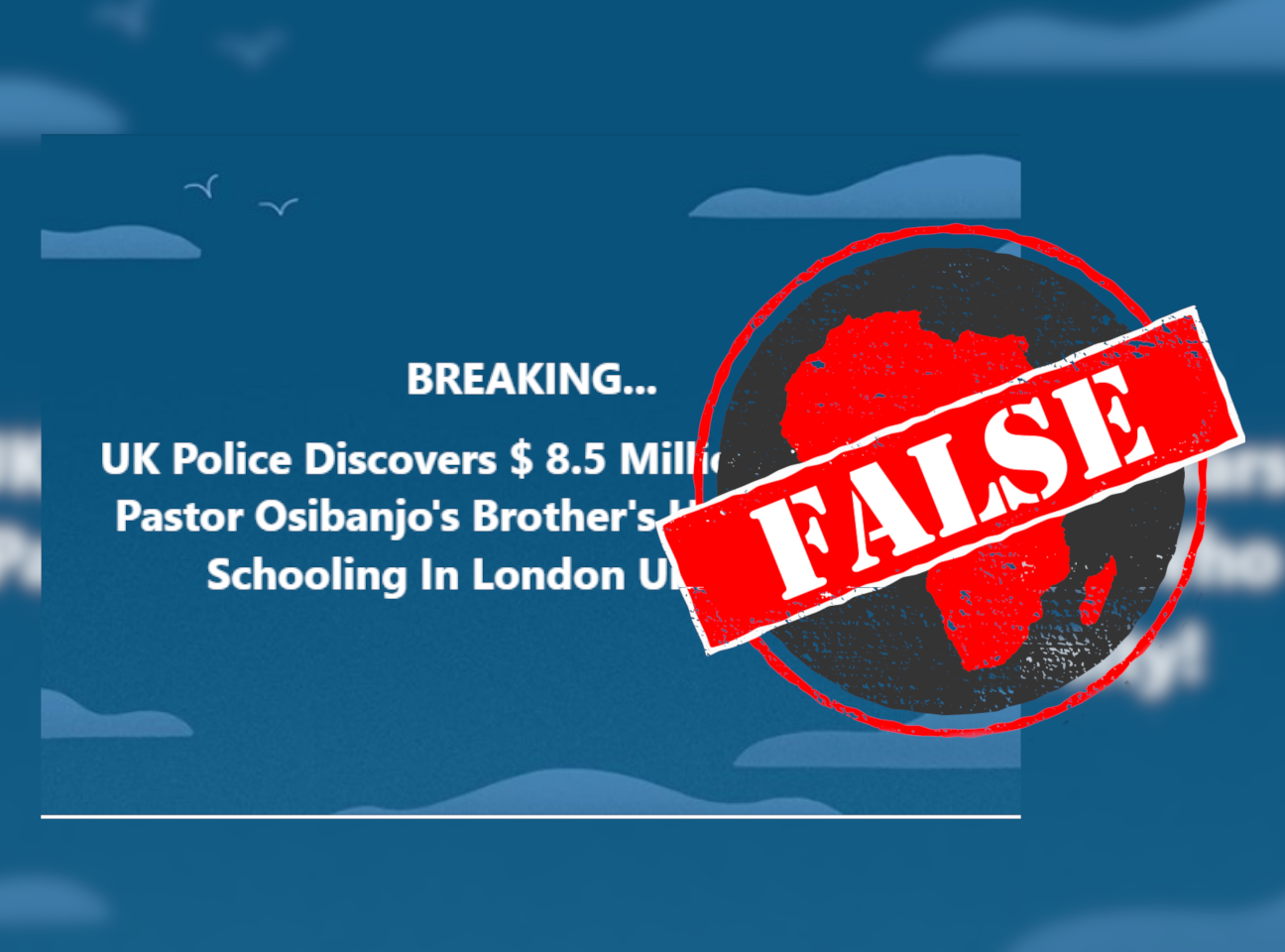IN SHORT: A claim about a large amount of cash found in a London flat has resurfaced on social media, after first gaining traction years ago. But it remains thin on details now, as it was then, and there’s no link to Nigeria or to the country’s vice president.
A post on Facebook in Nigeria claims that the UK police found US$8.5 million in a house belonging to the brother of Nigeria’s vice president.
The post reads: “BREAKING … UK Police Discovers $ 8.5 Million dollars In Pastor Osibanjo's Brother's House Who Is Schooling In London University!”
We found the same claim on Facebook here, here, here, here and here.
But is there any evidence that this story is true? We checked.

No evidence for any details
Yemi Osinbajo is Nigeria’s vice president. He is also a pastor. His surname is “Osinbajo”, not “Osibanjo” as in the Facebook posts.
The Facebook post gives no details, such as the name of the person meant to be Osinbajo’s brother or where in the UK the house is. This lack of detail is often an indication that a Facebook post is false.
There have also been no reports like this in either local or international media, which we would expect if it were true.
Original story from 2014
In 2018, a Nigerian blog claimed that US$8.5 million was found in a UK flat belonging to a relative of Osinbajo. But there was no evidence to support it.
The original story was first reported by UK media organisations the BBC and Daily Mail in 2014, a year before Osinbajo became vice president.
According to these media reports, the money was found in a flat in the UK capital London. It reportedly belonged to a 29-year-old man whose identity was not disclosed – and no mention was made of him being Nigerian.
These latest claims are suspiciously similar to the 2014 story, including the amount involved. But there’s still no evidence for the story.
Republish our content for free
For publishers: what to do if your post is rated false
A fact-checker has rated your Facebook or Instagram post as “false”, “altered”, “partly false” or “missing context”. This could have serious consequences. What do you do?
Click on our guide for the steps you should follow.
Publishers guideAfrica Check teams up with Facebook
Africa Check is a partner in Meta's third-party fact-checking programme to help stop the spread of false information on social media.
The content we rate as “false” will be downgraded on Facebook and Instagram. This means fewer people will see it.
You can also help identify false information on Facebook. This guide explains how.


Add new comment